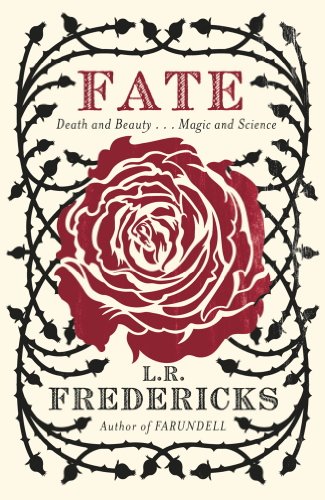Fate
In 1717, on his 17th birthday, Lord Francis Damory discovers a book linking him to his great-great grandfather, Tobias, an alchemist who may yet still be alive. Prompted by this he sets out to seek the elixir of immortality, from the gilded salons of London and Paris to brothels and debtors’ prisons, Venice and the pirate infested Mediterranean. He experiences love affairs and duels and encounters courtesans, castrati, anatomists, Rosicrucians, visionaries, monsters, charlatans, spies and assassins. Fredericks brilliantly absorbs the detail of 18th-century cities, country, clothes, food, theatre, music and architecture.
Fate is an intricate, Gothic novel in elegant style. For example, Fredericks describes Damory’s approach to Alexandria: ‘At the first sight of that distant smudge on the horizon a strange shiver passed over me, as though I was shedding a skin.’ Damory is like a knight in a romance; his adventures test his nobility, resourcefulness and determination to find Tobias. They reveal the marvels which 18th-century travellers discover in exotic locations and reproduce in their own lands. One character, Meryll, has ‘architectural ambitions and threw himself into producing detailed drawings of buildings with courtyards, wings and pavilions, Corinthian columns and ornamental pediments.’ This fast-paced fiction transcends the genre.
At the end of the novel, Damory and Meryll make a discovery on Damory’s estate. ‘My God, Damory, I think this is a temple – a Roman temple… How could such a place have remained hidden for so long? And why hide it?’ To find out, read Fate; discover its secrets; meet its characters; experience Damory’s quest, above all enjoy a deeper sense of what it is to be human.










